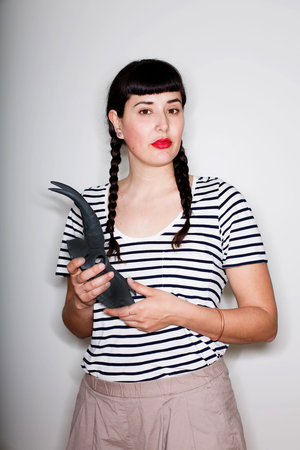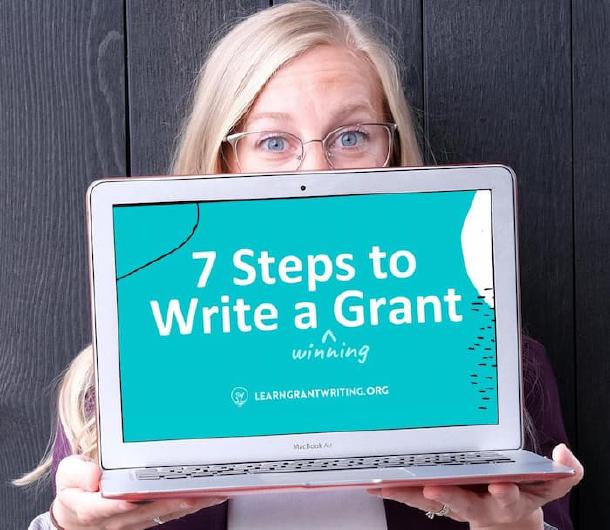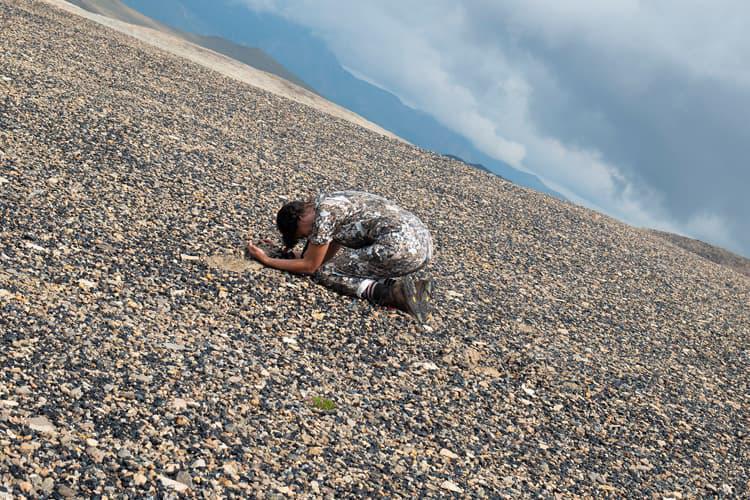Right off the bat we knew we liked Tsēmā. Thankfully we didn’t see her website until after teaching her to write grants! She is a wicked talented artist that we now kind of fan over like groupies.
Advice for Artists Pursing Grant Funding
In fairness, she has her own Wikipedia page. #goals. Aside from her delightful personality and powerful body of work, Tsēmā has great advice for other artists looking at grants.
The interview was filled with gold nuggets. Before we walk you through the conversation, we had to pull her advice to other artists pursuing grants.
Advice for fellow artists pursuing grants:
- Don’t write so much.
- Focus on one project at a time.
- Don’t use the kind of language that you use in art school. Use plain language with clear projects and clear artistic value.
You have to listen to how she said it to fully appreciate the painful lessons she learned the hard way in acquiring that knowledge!
Tsēmā was encouraged to get on a peer review board through the Canada Council on the Arts. She said, “You read hundreds of grants. You get so much from that!”
If you can find a local grant review committee, try to get on it! You will learn so much reviewing other grant proposals that can immediately help improve your own writing style.
She noted that one of the reasons they rejected grants is because there was more concentration on the philosophy of the artist than on the broader community impact. Whether pursuing an art grant or not, it is critical to see beyond ourselves and paint a bigger picture for why the project is urgently needed and significant.
Tsēmā added, “Keep on trying!” Even after being on the review jury, she was rejected on grant applications to the Canada Council on the Arts and elsewhere. She says she continues to learn and that helps her get better with every application.
Her Grant Writing Wins
 Tsēmā joined Grant Writing: From Start to Funded in April, right as the coronavirus pandemic was taking hold.
Since finishing the coursework, she has submitted four grants. She has won two of those, lost one, and is still
waiting to hear back on the third.
Tsēmā joined Grant Writing: From Start to Funded in April, right as the coronavirus pandemic was taking hold.
Since finishing the coursework, she has submitted four grants. She has won two of those, lost one, and is still
waiting to hear back on the third.
While she admits taking it very personally when not winning a grant (we agree — it’s hard not to!), she said she is still thankful to have applied as it forced to turn her nugget of idea into a real project. It also led to preparing the subsequent applications with that preliminary project in place.
While she doesn’t like to follow up with the funder, she promised to work on doing it more often. She learned from the unsuccessful application that the funder didn’t like that she was trying to fund several projects in one. It was a reminder to focus on one single project at a time.
With the successful grants, she has been able to pivot plans from the original projects and make them digitally available for virtual enjoyment. We have actually included one of Tsēmā’s successful grant narratives in the course in our example grant narratives packet.
On Why She Took the Course
“I was looking for bigger grants.” Tsēmā is working with a nonprofit to infuse art and culture into culture revitalization, mentorship of youth, and community-based monitoring programs from a contemporary and ancestral perspective.
The course was recommended to her by Curtis Rattray, a former graduate of the program. He valued the templates we provided to short cut the grant development process. He encouraged Tsēmā to take the course so that they would be on the same page regarding grant pursuit strategy.
Their Funding Strategy
Speaking of grant pursuit strategy! Tsēmā’s nonprofit met with the Vancouver Foundation, something she said she would never have done before. They are eager to apply for a testing grant that funds up to a $100,000 for testing a system change.
Here’s the kicker and why we loved this part of the interview! They had a great discussion with the funder and identified how to prepare their program to be most competitive. They took that information and are taking the time to apply it. She says they will apply for the grant a little over a year from now, giving themselves plenty of time to prepare.
In that comment alone, we knew that our course had an impact on Tsēmā! It can be extraordinarily tempting to have a shot-gun approach to grant writing. That approach, however, is exhausting and fairly ineffective. Taking the time to pick out the right grants to pursue in the first place, and then make sure you are positioned as well as possible to succeed, is the true distinguisher of good from great grant writers.
Be sure to head on over to Tsēmā’s fantastic website and get lost in it like we did: https://www.tsema.ca/
If you want to up your game as a grant writer, or get into it as a beginner, check out our free grant writing class on the 7 steps to writing winning grants. We guarantee you will learn something new!
Free Grant Writing Class
Learn the 7-steps to write a winning grant application and amplify the impact you have on your community.
Access Free Class
Photo cred: Trail Head, Flagging Tape, Horse Hair, Dowel, 2016




